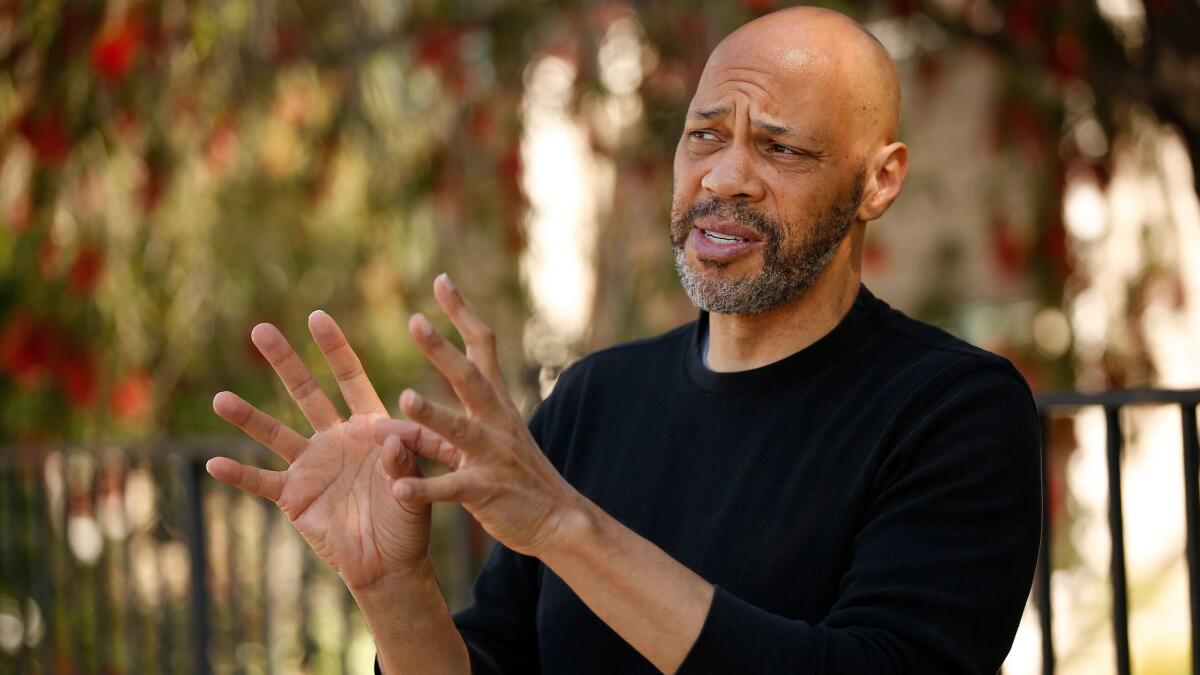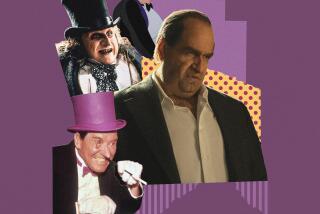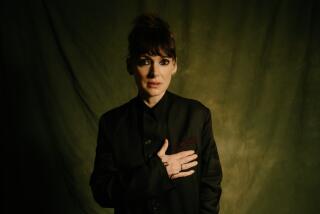John Ridley reveals what he can about Black Batman and ‘The Other History of the DC Universe’

- Share via
Most may not equate “12 Years a Slave” or FX’s “American Crime” — two seriously dramatic projects — with DC Comics, but it’s all a matter of perspective.
Specifically, the perspective of John Ridley, the Oscar-winning writer and TV creator whose “12 Years a Slave” took the point-of-view of a freed Black man made to live as a slave. Ridley has actually written for DC periodically since 2004 — including “The American Way” comic book series and the animated movie “Justice League: Starcrossed.” Now, however, he’s brought his signature skill for envisioning situations from a different vantage point to “The Other History of the DC Universe,” a five-issue series focused on some of DC’s lesser-known characters: Jefferson Pierce (Black Lightning), Mal Duncan and Karen Beecher-Duncan (Bumblebee), Renee Montoya (The Question), Katana and Anissa Pierce (Thunder). John Stewart (Green Lantern), the first Black superhero in the DC Universe, shows up too.
The characters, all heroes of color, are some of Ridley’s favorites in the DC superhero community.
“[What are] all the things that attracted me to doing this story?” Ridley says. “The deep dives, a look at the history of the DC universe, and imbuing that with real history [and] things that really happened. Trying to look at these timelines as being real and true —that these folks were mortal rather than immortal. Then, how do these stories line up.”
Publishing under the DC Black Label, the bimonthly series began in November with art by Giuseppe Cammuncoli and Andrea Cucchi. Ridley revels in this chance to tell the types of stories that offer a different point of view of heroes, adding a dose of real-world perspectives and different types of interactions between heroes.
In the first issue of “The Other History of the DC Universe,” the spotlight is on Black Lightning. Superman arrives to lecture him about being a vigilante on the “wrong side of the law.” But Black Lightning turns the conversation back toward the Man of Steel, saying: “If he didn’t want to deal with dealers, then he could help us tear down some tenements and put up decent housing. If he didn’t want to fight crime he could help us plant some gardens. But I told him what he didn’t get to do was fly his white privilege to my part of the city and lecture me on how to be a hero.”
As inspiring as it is for Ridley to write these characters, however, it’s his kids that he’s most happy to entertain.
“To know that my kids are excited about my work in general. To know that they’re gonna be excited about superhero stories and comic books and graphic novels ... As much as I love entertainment, getting young people to read — I think that’s so magical,” says Ridley.
“But also knowing that my kids are going to see heroes that look like their mom, that look like their friends. Being told that being different is not a handicap. Being outside of the prevailing culture is nothing to feel wrong about. It’s a struggle, but if people can’t see you for who you are, then F ‘em.”
As society has opened up to more discussions about race, the “American Crime” creator and showrunner understands the moment that he’s in and the audience that he is courting as well. Earlier this year, Ridley wrote an op-ed for The Times imploring HBO Max to at least temporarily remove “Gone With the Wind” for the way it ignores “the horrors of slavery” and “romanticizes the Confederacy.”
“I would just ask, after a respectful amount of time has passed,” Ridley wrote, “that the film be re-introduced to the HBO Max platform along with other films that give a more broad-based and complete picture of what slavery and the Confederacy truly were. Or, perhaps it could be paired with conversations about narratives and why it’s important to have many voices sharing stories from different perspectives rather than merely those reinforcing the views of the prevailing culture.”
His words helped prompt HBO Max to take down the film for a time; it’s now back on the platform with an introductory segment with film scholar Jacqueline Stewart.
Ridley’s stories may not always be centered on race, but with society’s reckonings this year, telling tales from the point of view of a character of color seems in step with the times.
“When we started ‘American Crime’ five or six years ago, people said, ‘Oh my God. The issues that you’re talking about are so well married to this moment.’ But that was after Trayvon Martin, during Ferguson, Freddie Gray. The unfortunate thing for me as a storyteller, as someone who tries to tell stories with an urgency, is that I’ve been in this ‘perfect imperfect’ moment year after year after year,” says Ridley.
“It’s not that these moments are arriving as I’m writing these stories, it’s that we’re all becoming so much more aware of how often these moments are happening — even Black and brown people who know these stories.”
Moving away from today’s moments, Ridley is also working on a singular Batman story under the DC Future State story line, which reimagines the DC Universe. Coming in January, Ridley’s “Future State: Batman” No. 1 not only changes the background and circumstances of the man behind the cowl, but also makes him Black. In delving into the character, Ridley has stripped away much of what comic fans have come to expect from the Dark Knight. The writer aims to explore who this new character is and what his struggles are in this alternate future timeline.
“What I’m talking about is a person’s background, a person’s status, a person that may have been given everything in life. Sometimes people who are given a lot of things don’t understand struggle. So, it’s one thing to be Black — that doesn’t mean all of the struggles of our daily lives are exactly the same,” says Ridley. Figuring this out, he adds, required a lot of questions to be asked.
“What is this person going through? What have they been gifted in life? What do they have to discover? What are the things they are fighting for or against — before they even put on that costume? And how does that inform the Batman that they are?” Ridley says. “How that is so very different from Bruce Wayne.”
He can’t reveal too much about who his Batman is, but it’s clear a lot of thought has gone into shaping his character. Ridley, who also makes his Marvel Comics debut in January with “Wolverine: Black, White, & Blood” No. 3, aims to make comics more inclusive.
“I hope that I can reach a lot of other people who may feel like ‘nobody gets me, nobody understands me.’ Maybe nobody does get you or maybe nobody understands you, but that doesn’t make you different — that makes you singular.”
More to Read
The biggest entertainment stories
Get our big stories about Hollywood, film, television, music, arts, culture and more right in your inbox as soon as they publish.
You may occasionally receive promotional content from the Los Angeles Times.











